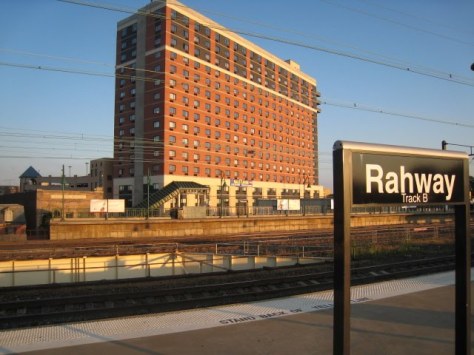The City Council on Monday night rebuffed Mayor Rick Proctor’s move to add two positions to his office, a proposal that wasn’t supported by his own business administrator.
The mayor had sought a full-time executive secretary with a salary range of $45,000-$55,000 and a part-time chief of staff with a salary of $45,000. The two positions were removed from the salary ordinance (which sets the range for a variety of titles within the city) during the governing body’s pre-meeting conference and later voted unanimously to introduce the measure at its regular meeting. A public hearing and final approval will be held during the council’s Sept. 12 regular meeting.
City Administrator and Redevelopment Director Peter Pelissier told council members Monday night that he was not in favor of the two positions “in light of the fact that we’re trying to control taxes and spending.” He did not understand the need for a chief of staff, though he “understood somewhat” the secretary’s position, adding that the mayor could be accommodate with existing staff. “It’s not in our best interest to move a secretary from another department to the mayor’s office,” Pelissier said.
If $100,000 is added to the city budget, Pelissier said it would be better spent hiring firefighters and making promotions, as has been debated in the past, though there’s a question whether even that is sustainable. Last month, representatives of Firemen’s Mutual Benevolent Association (FMBA) Local 33 appeared before the City Council to increase staffing levels. Several council members expressed a desire to hire two firefighters over two administrative posts.
Whether there is $100,000 available in the budget remains to be seen, as planning on the 2012 budget moves ahead this fall. City Attorney Louis Rainone reminded council members that the ordinance merely authorizes the city to pay these salaries. Whether there are funds available, that decision comes when the budget is deliberated.
The executive secretary post has been vacant for five or six years and Proctor said the previous mayor at one time or another had a chief of staff or executive secretary during his tenure. A chief of staff is a more of a policy aide and with all that’s going on with economic development and the Arts District, “there’s a lot to get a handle on,” he said, adding that there have been a few items he hasn’t been able to implement since taking office. Existing staff could be moved from another office to fill the executive secretary post, so it’s not necessarily adding a position but just result in some bumping, he said.
The chief of staff would be new but Proctor said he has the duty to spend money responsibly, and as needs of the city evolve, he must respond appropriately. A chief of staff would help to move the city forward more effectively. The position more focused on policy development and planning while a city administrator handles day-to-day operations and assists in the planning the budget and other business functions.
There were no objections raised, according to Proctor, when he discussed it with the administrator on Friday. He was “very disappointed that City Council members did not seek additional information” on the positions before removing them from the ordinance. “It felt like the whole thing was a little orchestrated,” Proctor said in a telephone interview Tuesday. The mayor said he’s been evaluating city operations and has attempted to change the “business as usual attitude,” but when he tries to implement changes, he gets “a lot of pushback.”
Second Ward Councilman Michael Cox asked what impact there might be if the measure was tabled. Pelissier said most management employees are expecting a 2-percent salary increase (unless it’s been adjusted for specific reasons), and if the ordinance were table, approval would not come until October, with payment retroactive to July.
The motion to remove the positions and vote on the ordinance was made by 6th Ward Councilman Samson Steinman and seconded by 5th Ward Councilwoman Jennifer Wenson-Maier. The ordinance was introduced unanimously. The ordinance set a rate of $65,000 for the mayor; $110,000-$163,344 for the city administrator, and $8,043 for council members ($9,676 for council president). The council’s rate represents an increase from $7,740 ($303, or 4 percent).
During the public portion of the meeting, representatives of FMBA Local 33 lobbied for hiring three firefighters and promoting two others.
Proctor said the need exists and he will continue to press to improve outreach, and though he wasn’t sure what form it would take, he would continue to push for the position. “Hopefully with the business administrator and City Council’s cooperation.”
In general, it’s uncommon for an administration to disagree so publicly, especially when they’re all from the same party (in this case, Democrats). Even for the City Council, it’s been rare to see members break from the administration or voice much dissent on most issues in recent years.
Asked how he would describe his relationship with the city administrator, Proctor said: “Developing.” Proctor took office in January, reappointing Pelissier to another four-year term following many years as administrator to former Mayor James Kennedy, who did not seek re-election last year.
Like this:
Like Loading...



